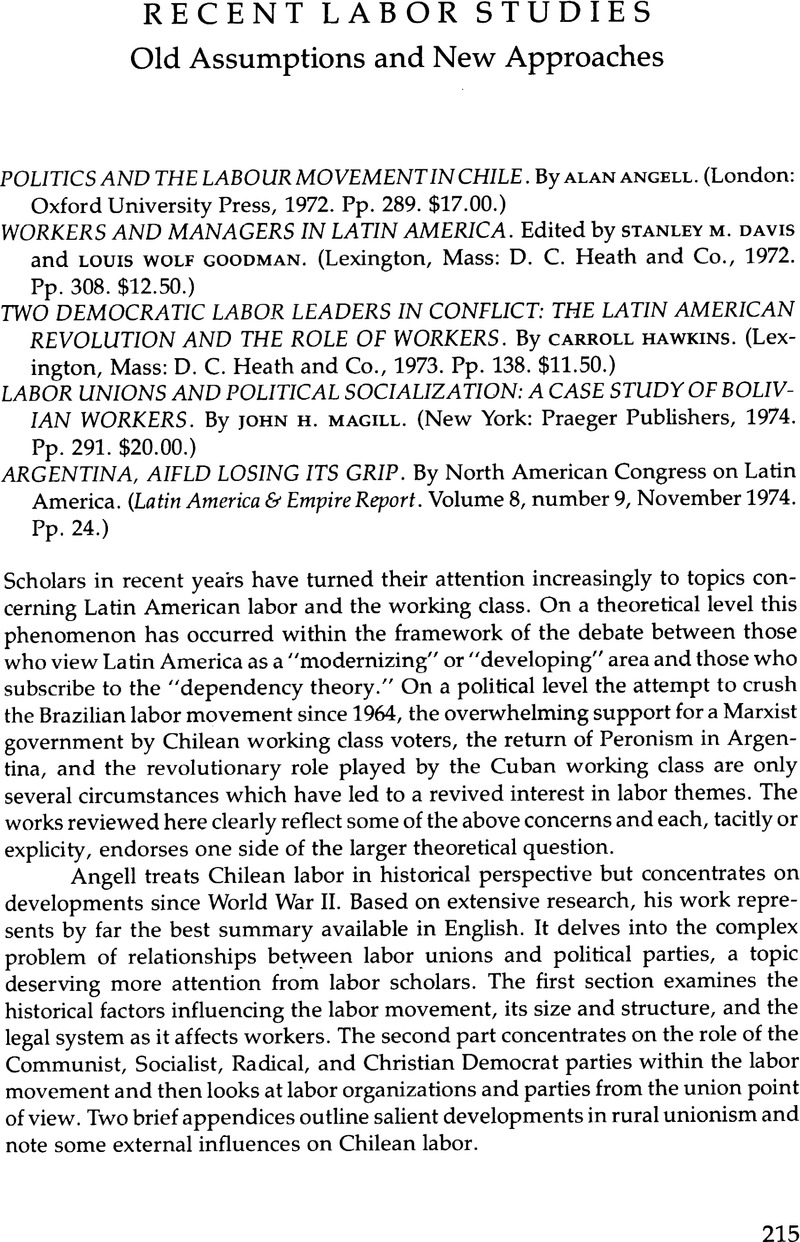No CrossRef data available.
Published online by Cambridge University Press: 24 October 2022

1. Peter Winn, “Workers into Managers: Worker Participation in Chilean Textile Industry” (Paper delivered at the Conference on Labor and Social Change in the Americas, Rutgers University, New Brunswick, N.J., 1973); “Approaches to Labor History in Latin America: Yarur, A Chilean Factory Study, 1937–1973” (Paper delivered at the American Historical Association, Chicago, 1974); Juan Carlos Torre, “Workers Struggle and Consciousness,” Latin American Perspectives 1, no. 3 (Fall 1974): 73–81; Timothy F. Harding, “A Political History of Organized Labor in Brazil” (Ph.D. diss., Stanford University, 1973); Steven S. Volk, “Class, Union, Party: The Development of a Revolutionary Union Movement in Bolivia (1905–1952),” Science and Society 24, no. 1 (Spring 1975): 26—43.
2. See the author's review of Mesa-Lago's Revolutionary Change in Cuba in NACLA's Latin America & Empire Report 6, no. 10 (December 1972): 30–31; and Cuba Review 4, no. 1 (July 1974), devoted to workers and unions in Cuba.
3. For example, Steve Babson, “The Multinational Corporation and Labor,” The Review of Radical Political Economics 5, no. 1 (Spring 1973): 19–36.
4. Republished in Argentina in the Hour of the Furnaces (New York: North American Congress on Latin America), pp. 56—76.
5. For example, Kenneth P. Erickson, Patrick V. Peppe, and Hobart A. Spalding, Jr., “Research on the Urban Working Class and Organized Labor in Argentina, Brazil, and Chile: What is Left to be Done?,” LARR 9, no. 2 (Summer 1974): 115–42; Jeffrey Harrod, Trade Union Foreign Policy (Garden City, L.I.: Doubleday, 1972); and chapter 6 covering labor and imperialism in the author's forthcoming book on Latin American labor (Harper and Row, 1976).